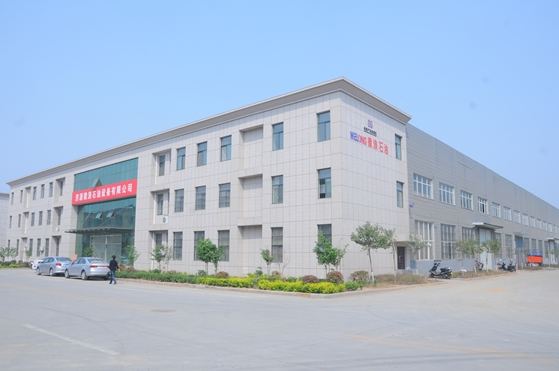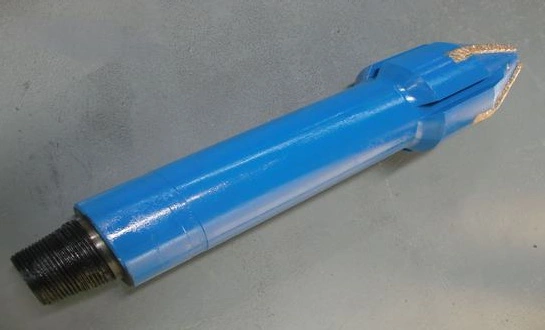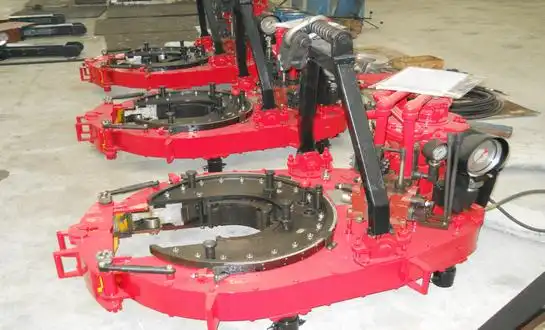Ensuring Compliance and Quality in Steel Mill Roll Production
The Importance of Quality Control in Mill Roll Manufacturing
Quality control is a cornerstone of producing high-performance mill rolls. Manufacturers with European certification adhere to comprehensive quality management systems that span every stage of the production process. These systems ensure that from the moment raw materials are selected to the final inspection of the finished product, every detail is scrutinized and documented. This meticulous monitoring guarantees that the mill rolls not only meet but often exceed industry standards and client specifications. With such stringent quality control measures, manufacturers can provide products that are reliable, consistent, and optimized for performance in demanding milling operations.
Material Selection and Testing Procedures
The foundation of a high-quality mill roll lies in the careful selection of materials. Certified European suppliers prioritize sourcing premium alloys, ensuring that the materials used possess the necessary properties for high-performance applications. Rigorous testing procedures are implemented to verify the material’s integrity, which includes chemical composition analysis and microstructure evaluations. By examining these factors, manufacturers ensure that the materials are up to standard before they enter the production process. The use of high-quality materials greatly influences the final product’s durability, wear resistance, and overall operational efficiency, resulting in longer-lasting mill rolls that can withstand the harsh conditions of continuous use.
Precision Manufacturing Techniques
To achieve superior mill rolls, manufacturers utilize cutting-edge production techniques that emphasize precision. Computer-controlled machining processes, advanced heat treatment methods, and specialized surface finishing techniques are applied to ensure the rolls are produced within tight tolerances. These precision methods help to achieve consistent quality across all products, which leads to mill rolls with better wear resistance and reduced maintenance needs. Additionally, the smooth surfaces produced through these techniques enhance operational efficiency in steel mills by reducing friction and improving product quality. The combination of high-quality materials and advanced manufacturing methods results in mill rolls that offer excellent performance, longer service life, and reduced operational costs for the end user.
How do European standards influence roll manufacturing processes?
Harmonized European Standards for Mill Roll Production
European standards play a significant role in shaping the production of mill rolls, ensuring consistency and quality across the industry. These standards, developed by organizations such as the European Committee for Standardization (CEN), offer a unified approach to quality, safety, and performance. Manufacturers who adhere to these standards are required to implement highly structured production processes that ensure their mill rolls are reliable and meet strict specifications. By establishing clear guidelines for material selection, production techniques, and testing procedures, these harmonized standards help to eliminate variability and maintain the high performance expected from mill rolls in steel manufacturing.

Environmental and Safety Considerations
In addition to focusing on quality, European standards place considerable emphasis on environmental responsibility and worker safety. Certified manufacturers must adopt sustainable practices in their production processes, striving to minimize waste and reduce the environmental footprint of their operations. Energy efficiency is also a key factor, with companies encouraged to implement technologies that lower energy consumption during the manufacturing process. Alongside these environmental considerations, worker safety remains a top priority. Stringent safety protocols are enforced throughout the production cycle, from the handling of raw materials to the final inspection of the mill rolls. This ensures that workers are protected from potential hazards, while maintaining a productive and safe work environment.
Continuous Improvement and Innovation
The impact of European standards goes beyond mere compliance—they foster a culture of continuous improvement and innovation. Certified manufacturers are encouraged to invest in ongoing research and development, which leads to advancements in material technology, design enhancements, and optimized manufacturing processes. This commitment to innovation not only helps to improve the performance of mill rolls but also extends their lifespan and enhances operational efficiency. By continually pushing the boundaries of material science and production techniques, European manufacturers can offer mill rolls that provide steel producers with greater reliability, reduced downtime, and improved cost-effectiveness. This emphasis on progress ensures that the mill rolls produced are always aligned with the evolving needs of the industry.
Assessing Supplier Reliability Through Certification Credentials
Understanding European Certification Standards
When evaluating potential suppliers for your mill rolls, it's crucial to understand the various European certification standards. Key certifications to look for include ISO 9001 for quality management systems, ISO 14001 for environmental management, and industry-specific certifications such as those issued by national steel associations. These certifications provide assurance that the supplier follows standardized processes and meets rigorous quality requirements in the production of mill rolls.
Verifying Certification Authenticity
It's essential to verify the authenticity of a supplier's certification credentials. Reputable certification bodies maintain public databases where you can confirm a company's certification status. Additionally, you can request recent audit reports or certificates directly from the supplier. This due diligence ensures that you're partnering with a genuinely certified mill roll manufacturer who consistently meets European quality standards.
Assessing Long-term Supplier Performance
While certification is a strong indicator of quality, it's also important to assess a supplier's long-term performance. Look for suppliers with a proven track record of consistent quality, timely deliveries, and responsive customer service. Request case studies or testimonials from other steel mills that have used their mill rolls. This comprehensive evaluation will help you identify reliable suppliers who can meet your ongoing needs for high-quality mill rolls.
Source: CHINA WELONG-Oilfield tools Manufacturer
FAQ about Mill Rolls
What are the main types of mill rolls used in steel production?
Mill rolls used in steel production vary in type, each serving a specific function within the rolling process. Common types include work rolls, which come into direct contact with the steel and are typically made of high-chrome steel or other wear-resistant alloys; backup rolls, which are larger and support the work rolls while distributing the rolling force, usually made of forged steel; edger rolls, used in plate mills to control the width of the steel strip; intermediate rolls, positioned between the work rolls and backup rolls in multi-roll mills to improve strip shape control; and finishing rolls, which are used in the final stages of rolling to achieve the desired surface finish and dimensional accuracy.
How often should mill rolls be replaced or refurbished?
The frequency of mill roll replacement or refurbishment depends on several factors, including: 1. Type of steel being processed 2. Rolling speeds and temperatures 3. Roll material and hardness 4. Maintenance practices On average, work rolls may need to be replaced or refurbished every few days to a few weeks, while backup rolls can last several months to a year. Regular monitoring of roll wear and performance is essential to determine the optimal replacement schedule for your specific operation.
What are the key factors to consider when selecting mill rolls?
When selecting mill rolls, it is important to consider several key factors to ensure optimal performance. These include choosing rolls made from appropriate alloys tailored to your specific application, and ensuring they possess sufficient hardness and wear resistance to withstand the demands of the rolling process. Additionally, selecting rolls that can achieve the desired surface finish and are manufactured with tight dimensional tolerances helps maintain product quality and consistency. Thermal properties are also crucial, as rolls must be able to withstand and dissipate heat effectively during operation. Furthermore, sourcing rolls from reputable and certified manufacturers guarantees quality and reliability. Finally, evaluating cost-effectiveness by considering the total cost of ownership—including purchase price, expected lifespan, and maintenance needs—is essential for making a well-informed decision.
In conclusion, choosing a European certified steel mill roll supplier is a decision that can significantly impact your steel production operation. By prioritizing quality, compliance, and reliability, you're investing in the long-term success and efficiency of your mill. If you're looking for a trusted partner in mill rolls and other oilfield products, consider reaching out to Welong. With a commitment to quality and customer satisfaction, we're here to support your steel production needs. For more information or to discuss your specific requirements, please contact us at oiltools15@welongpost.com.





